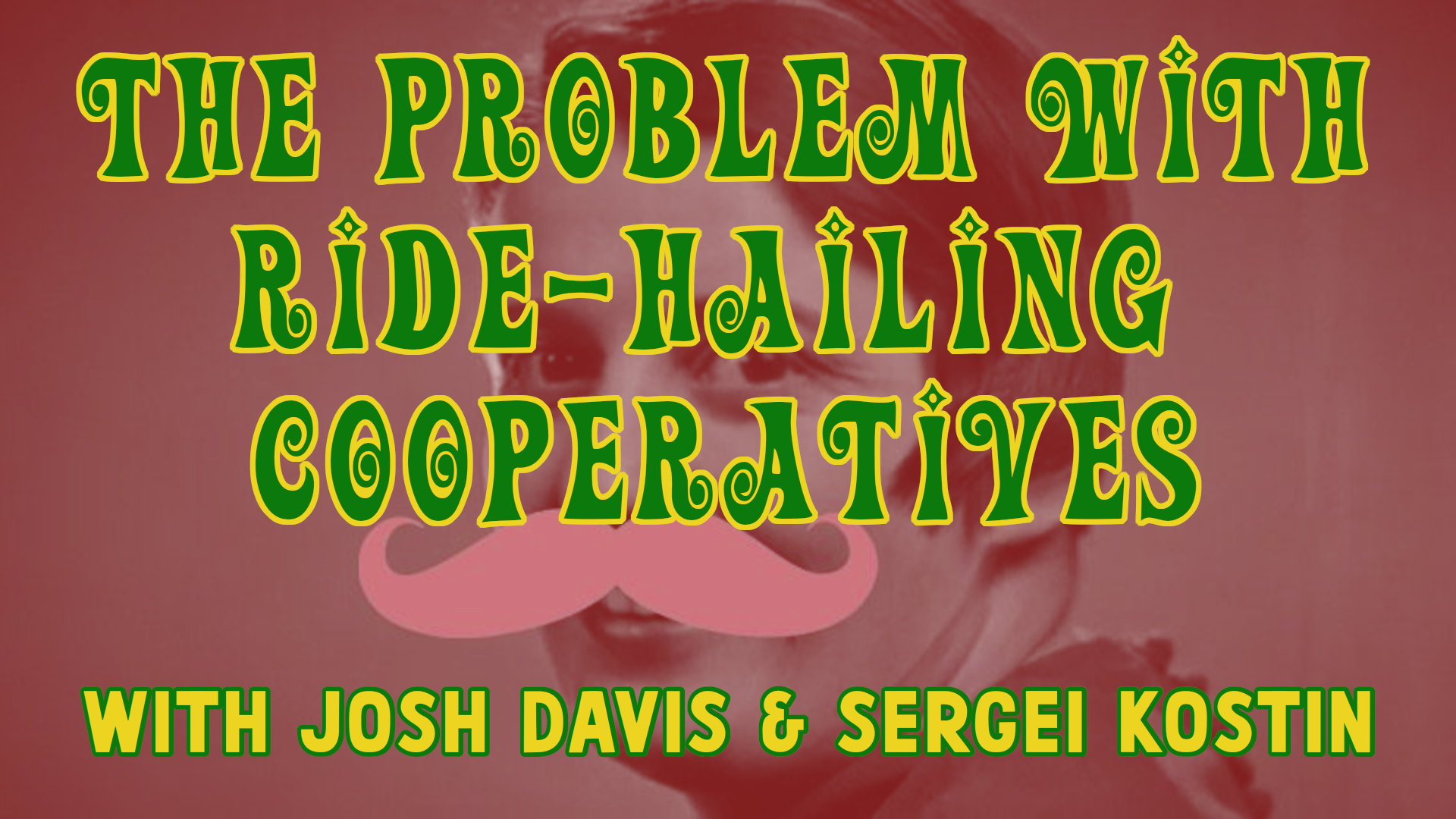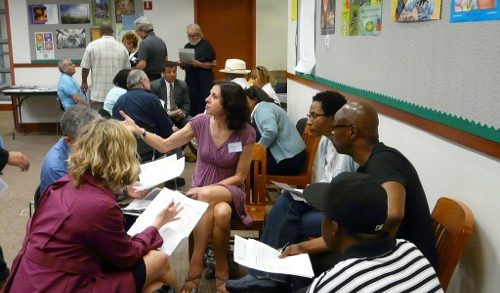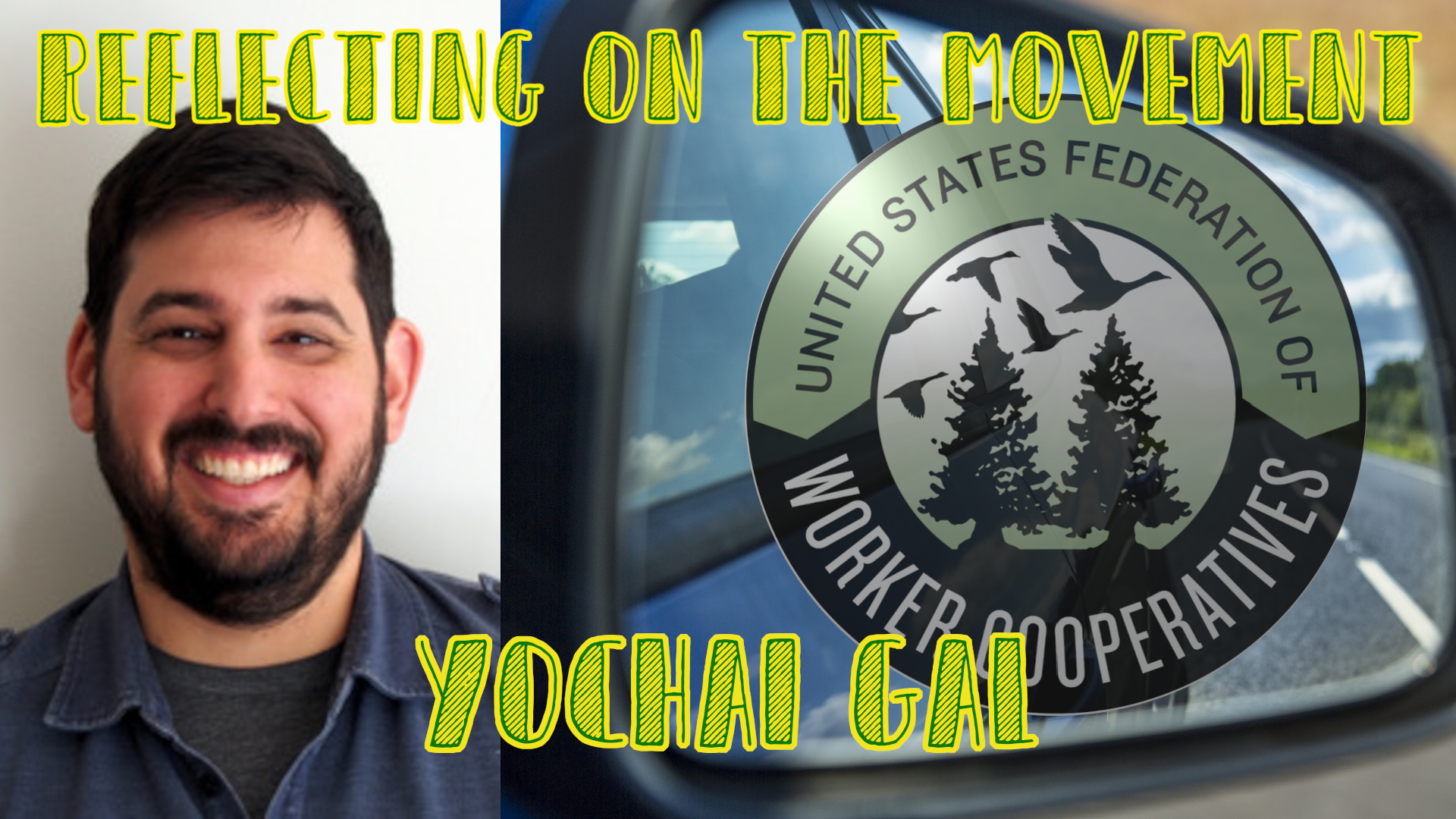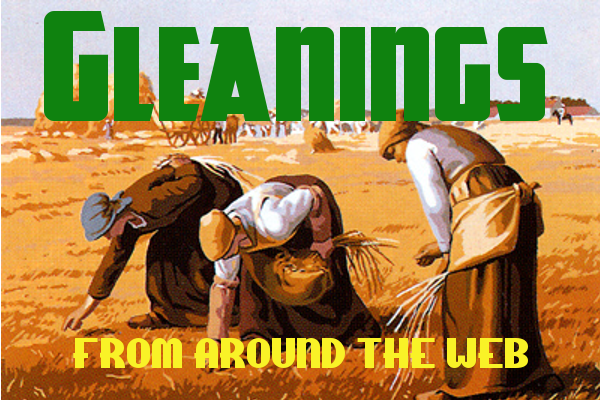Two weeks ago, we invited onto the CODEPINK podcast to discuss ride-hailing cooperatives with Sergei Kostin, a Lyft driver who was recently removed from the platform following a complaint about the pro-peace literature he keeps in his car. Josh Davis joined Sergei to talk about why simply creating a cooperative version of the Uber/Lyft model is not likely to be successful, and what other cooperative solutions might look like. CODEPINK was kind enough to share the recording of the conversation and allow us to post our own edit of it.
Then, Lerner Hadden offers a step-by-step guide for starting a participatory budgeting process in your community.
And finally, Yochai Gal shares his reflections on the the worker cooperative movement and where it should be going.
The Problem with Ride-Hailing Co-ops
by GEO Collective
Josh and Sergei discuss the problems with the Uber/Lyft "rideshare" business model, including its inability to create profits, its foundation in violating government and insurance rules and regulations, and its dependence on drivers not taking into account the full costs involved.
How to Start Participatory Budgeting in Your City
by Lerner Hadden
In 1989, the Brazilian city of Porto Alegre developed a new model of democratic participation, which has become known internationally as participatory budgeting (PB). Through this process, community members directly decide how to spend a portion of a public budget. In other words, the people who pay taxes (all of us) decide how they get spent.
This sounds simple, but it is not. Budgets are complex creatures, and it takes a lot of time and support for ordinary people to make wise spending decisions. For this reason, PB generally involves a year-long cycle of public meetings. Community members discuss local needs and develop project proposals to meet these needs, then invite the public to vote on which projects get funded.
A Conversation Between Co-ops in Rojava and the U.S.
USFWC — How can worker co-ops be a force for liberation and self-determination in the U.S. and Rojava? Join fellow worker-owners for a dialogue across borders that explores worker co-ops as a liberatory strategy for oppressed people globally. We’ll discuss strategies for growing the cooperative movement in different political and economic contexts and learn directly from one another’s experiences, exchange ideas, and build solidarity beyond borders. Hosted by the Emergency Committee for Rojava and the U.S. Federation of Worker Cooperatives - July 25, 10 am Pacific...
Metanoia Farmers Seek to Learn from the Land
Canadian Worker Co-op Federation — “They chose the name because they wanted it to reflect a turning of orientation towards how we interact with land,” says Co-op member Kay Drudge. “So caring better for the land, learning from the land, rather than just extracting resources from the land.”...With its community-shared agriculture (CSA) program, the Co-op seeks to build relationships between its members and the farm’s customers, while fostering a greater sense of connection to the land for everyone. According to its website, the Co-op “grow(s) only open-pollinated varieties using organic practices. Valuing the relationality and care for the soil that comes with using their hands and simple tools, they seek to minimize mechanization.”...
From countercultural ecovillages to mainstream green neighbourhoods
NPJ Climate Action — A review of 16 different studies comparing the carbon footprint of intentional communities worldwide with national averages provides strong support for claims of greater environmental sustainability within these communities. Similar studies have been conducted in different contexts, and they all find that ecovillagers live more sustainably and/or have a lower carbon footprint than average. Thus, collective action in green communities has the real potential to promote environmental behaviour...
The Cooperative Struggle Against Redlining
Shelterforce — In several American communities, former G.I.s proposed new integrated communities. Winning the war against fascism abroad created interest in building a new America at home. Among these communities were a number of housing cooperatives...Interracial housing cooperatives created after World War II were specifically meant to be inclusive of families of any color whatsoever. However, the same FHA that financed hundreds of post-war white suburbs was adamantly opposed to integrated suburbs. As a result, the FHA opposed the establishment of interracial housing cooperatives...
Help Launch The 51st, D.C.'s New Worker-led Nonprofit Newsroom
Givebutter — As we watched our supporters lament DCist’s loss in the weeks and months after the site was shut down, a team of alumni started scheming. What might it be like if we made a news source controlled by the journalists writing the stories? What if we finally got the chance to meaningfully engage with our readers and neighbors, creating journalism they really care about?...
New on our YouTube Channel
From "An Economy of Hope" to the USFWC [Audio version]
Like what you find on GEO?
Make a Donation Today!
Your tax-deductible contribution ensures that GEO can continue to provide independent grassroots content about the cooperative and solidarity economy movements.
Got something to say?
Let us know. Send your comments, suggestions, rants and article submissions to editors@geo.coop.
Follow us on Social Media
Mastodon: social.coop/@GEO_Collective
FB: facebook.com/GrassrootsEconomicOrganizing/
Twitter: twitter.com/@GEO_Collective
Our mailing address is:
Grassroots Economic Organizing
P.O. Box 115
Riverdale MD 20738-0115





